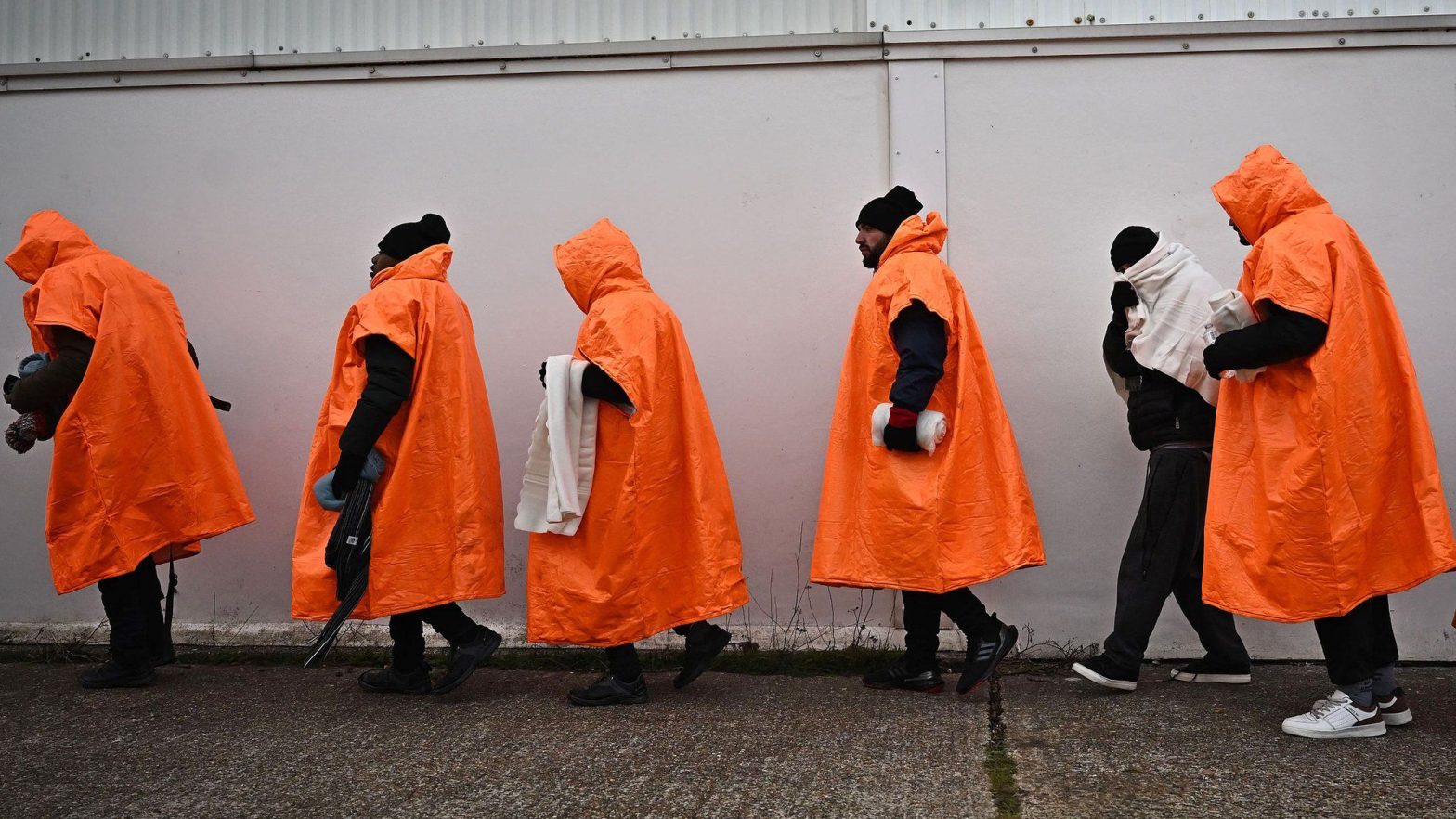Ministers to clash with peers over Illegal Migration Bill
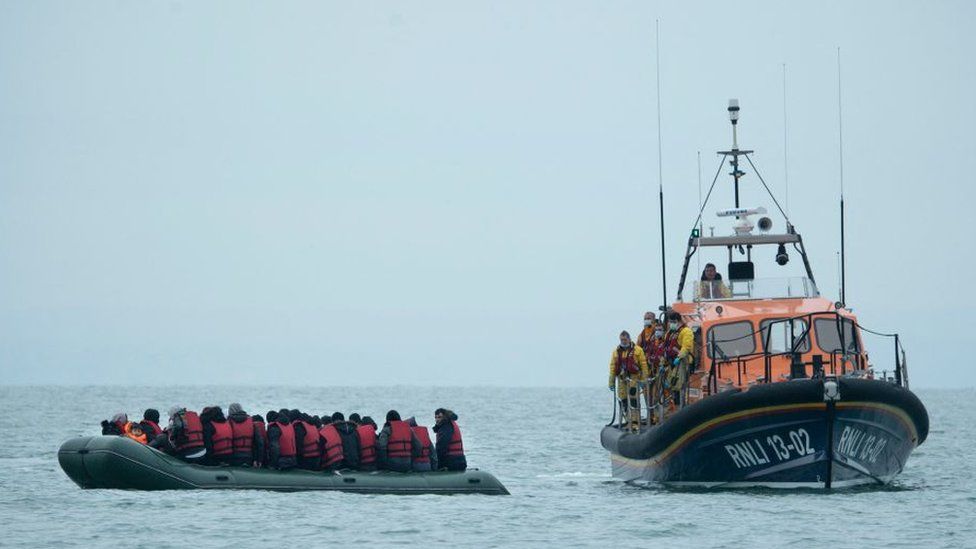
The government is set to clash with peers when its plan to tackle small boat crossings takes its next step through Parliament later.
The Illegal Migration Bill was passed by MPs last month, but is expected to run into significant opposition in the House of Lords.
The Archbishop of Canterbury, a previous critic of ministers’ migration policies, is among those due to speak.
But the home secretary has urged peers to get behind the legislation.
In a warning shot ahead of the debate, Suella Braverman said the bill represents “the will of the British people”.
Writing in the Times with new Justice Secretary Alex Chalk, she added that it had been “improved” during its passage through the House of Commons.
- The hurdles in Sunak’s race to pass Migration Bill
- How is the UK stopping Channel crossings?
- UK’s Rwanda asylum plan ungodly, says Archbishop
The bill, unveiled in March, is a key part of Prime Minister Rishi Sunak’s plan to “stop” small boats crossing the English Channel – which he has made a priority ahead of the next general election.
It will place a legal duty on the home secretary to detain and remove those arriving in the UK illegally, to Rwanda or another “safe” third country.
This has prompted outrage from opposition parties and charities, which argue the bill is unworkable and could breach international law.
Archbishop of Canterbury Justin Welby is among critics of the Rwanda scheme, previously describing it as “the opposite of the nature of God”.
His is among nearly 90 peers who have put their names down to speak in the debate later – over one in 10 of the members of the upper chamber.
The government made a series of concessions to different sections of the Conservative Party to ease its passage through the Commons last month.
However, senior peers have told the BBC they expect significant opposition in the Lords – where the government does not have a majority.
Although peers will not vote on amendments during the debate later, it will be their first chance to have their say on the bill and represents a chance for them to scope out support for possible changes to the bill at a later stage.
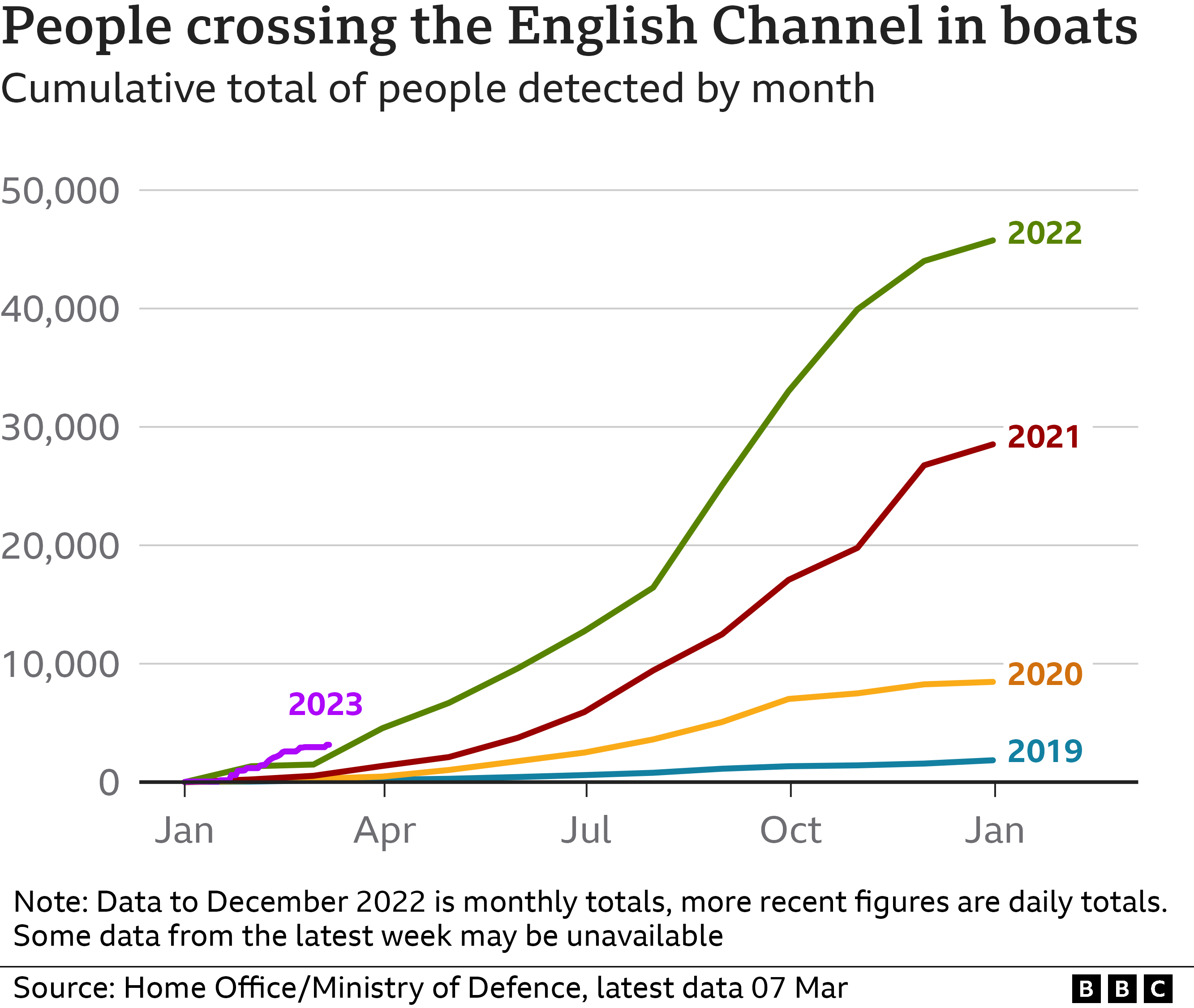
Lib Dem peer Lord Paddick has put forward a rare “motion to decline” to block the bill from proceeding any further in the House of Lords – although with Labour not expected to support it, this is unlikely to happen.
Lord Paddick, a former Met Police deputy assistant commissioner, argues the bill fails to meet the UK’s commitments under international law and removes the legal right of refugees to claim asylum in the UK.
He told the BBC the Lib Dems could not find “any redeeming features” in the bill, which he said was “unprecedented” in the way it ran contrary to the rule of law.
“As a matter of principle we can’t possibly allow this bill to continue,” he said.
If the motion is agreed the bill would be dropped from the Lords and would have to be reintroduced by the government in the Commons from scratch.
However, a Labour Lords source said the party was not supporting the motion, making it unlikely to pass.
‘Irresponsible’
The source said that if the motion was successful, the government could just use the Parliament Act to introduce the bill, without peers getting the opportunity to make any amendments.
“It is therefore an irresponsible way to deal with legislation that has already gone through the elected House,” they added.
The source described the bill as a “gimmick” which “won’t deal with the major problems and misery caused by those who traffic and exploit vulnerable people”.
Several peers have already spoken out against changes giving ministers more leeway to ignore attempts by European judges to halt deportations of migrants from the UK.
The government has also faced strong criticism from senior Tories, including former Prime Minister Theresa May and former Tory leader Sir Iain Duncan Smith, over the potential impact of the bill on victims of modern slavery.
The bill would take away temporary protections against removal from the UK that are currently offered to suspected victims of modern slavery or human trafficking while their case is considered.
Critics say this could deter victims from going to the police.
There has also been concern, including among Conservative MPs, over new powers in the bill to detain children on the suspicion that they are liable for removal.
Ministers have agreed to work with Tory MPs on a time limit for how long unaccompanied children can be detained.
To get the bill through the Commons, ministers also promised to set out new safe and legal routes for asylum seekers, after pressure from backbenchers.
Related Topics
- UK immigration
- Immigration
- Refugees and asylum seekers
- Liberal Democrats
-
Migration bill passes as Tory rebellion defused
-
27 April

-
-
Asylum plan risks breaching human rights – watchdog
-
24 April
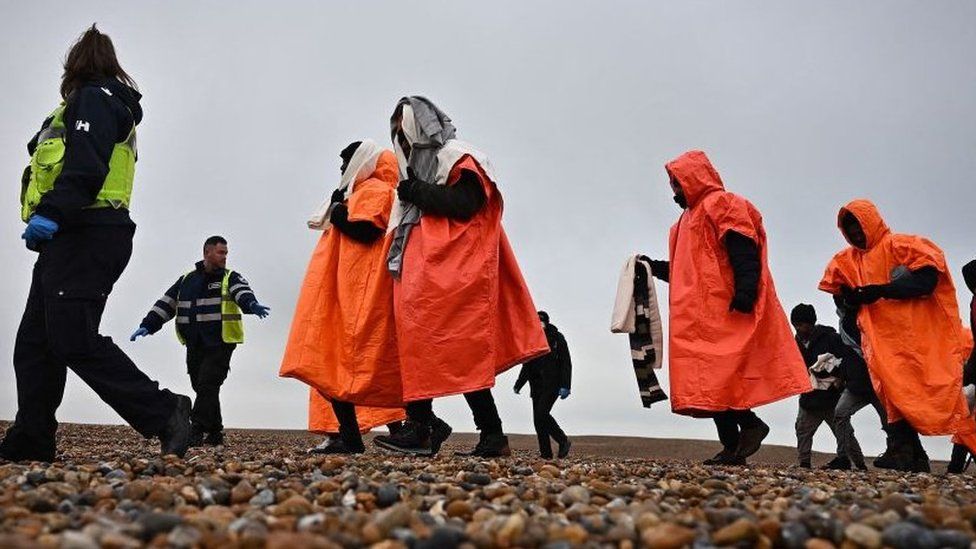
-
-
May: Asylum plan won’t solve illegal migration
-
13 March
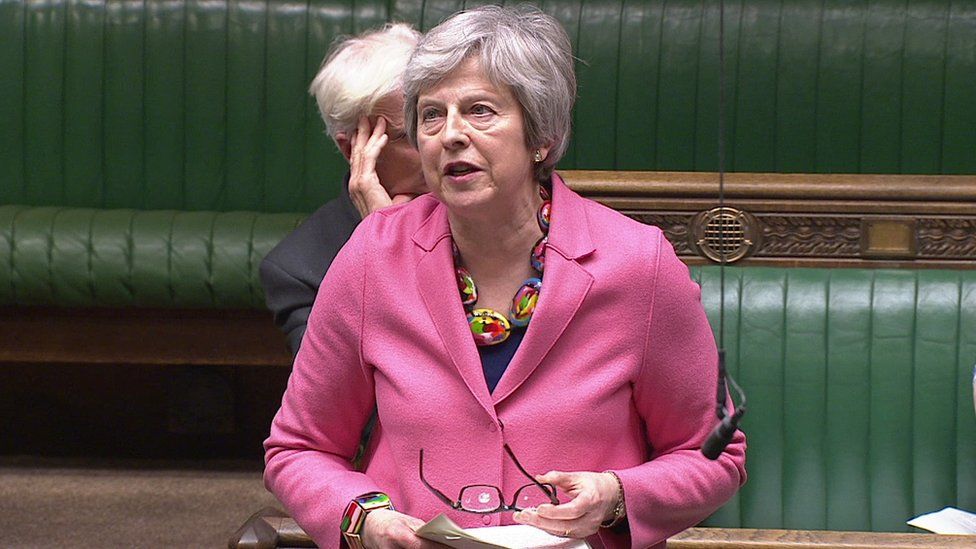
-
-
The hurdles in Sunak’s race to pass Migration Bill
-
9 March
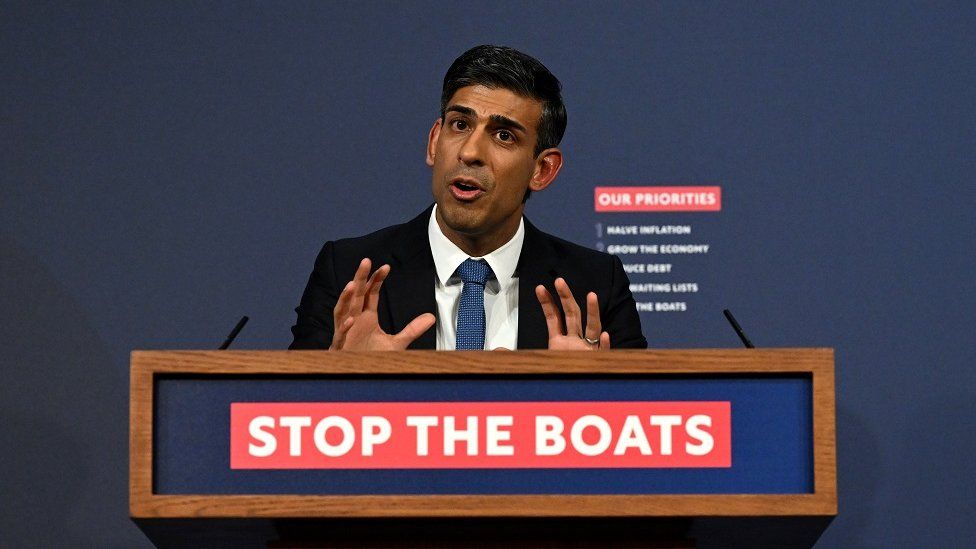
-
-
How is the UK stopping Channel crossings?
-
27 April
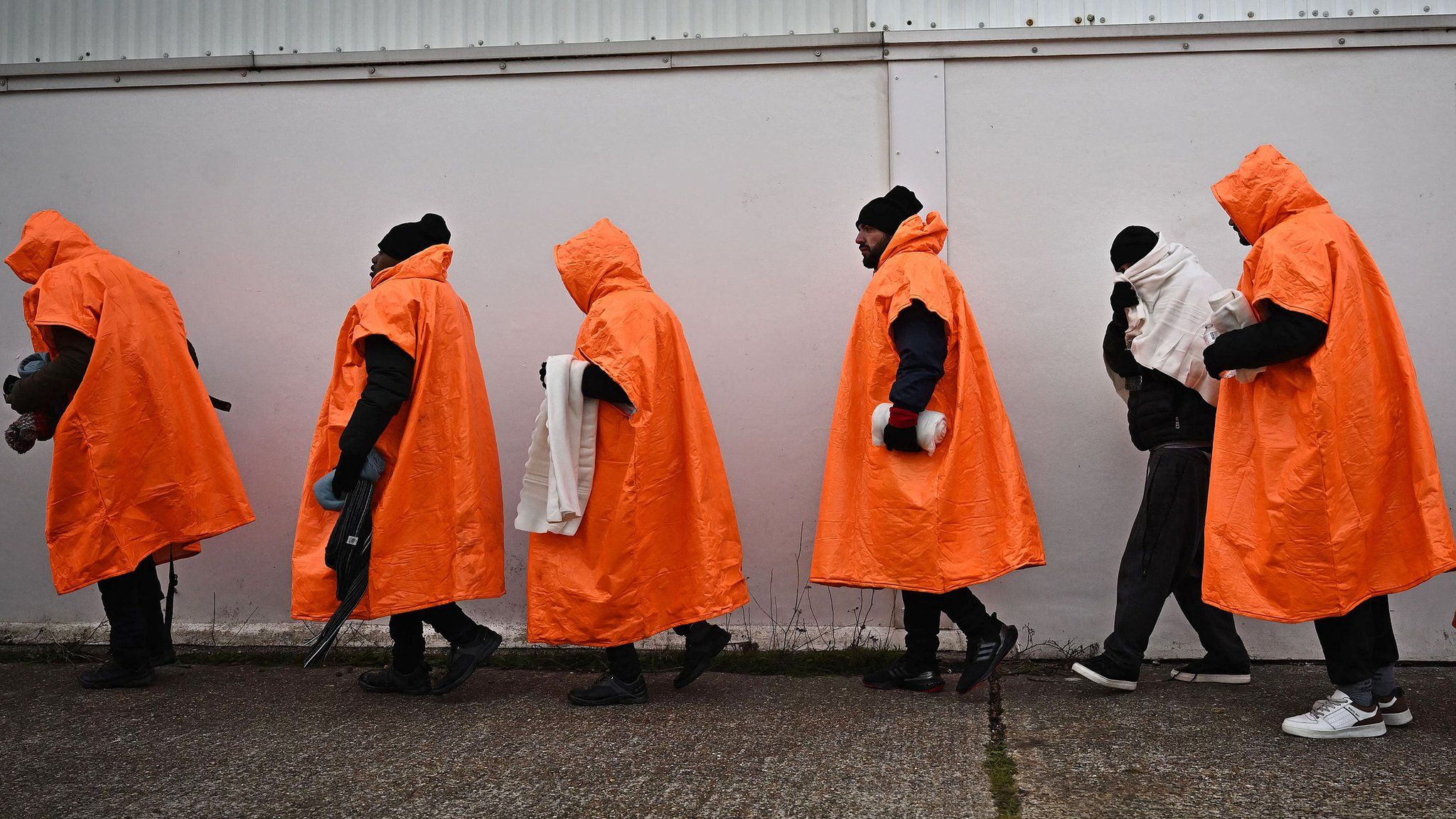
-
Published at Wed, 10 May 2023 08:03:17 +0000
